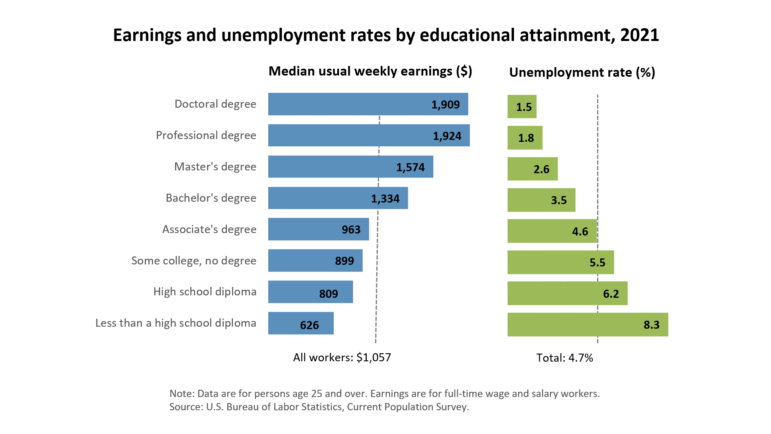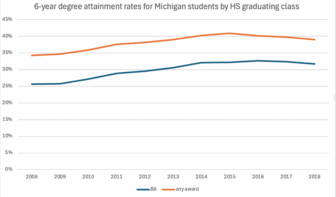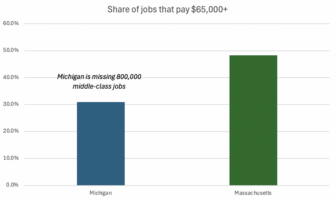
The Bureau of Labor Statistics each year publishes a chart that details the unemployment rate and median weekly earnings by education attainment for those 25 and older who work full time. The data for 2121 are below.

Year after year the same story. (For instance this post on the 2013 data.) Each time new data is published the question that comes to mind is “how can the data be misinterpreted?”. Seems like the conclusion is crystal clear: higher education attainment means the more you work and the more you earn. And this is particularly true for those with a B.A. or more.
And yet we continue with a public conversation that increasingly questions the value of getting a four-year degree or more. The reality is––as these data depict––that a four-year degree or more is the most reliable path to a middle class or better career. End of story!
Part of the public conversation now is that the B.A. wage advantage is disappearing for recent college graduates. Not true! If anything the B.A. wage advantage is growing post pandemic.
The Federal Reserve Bank of New York produces a Labor Market for Recent College Graduates webpage. Worth checking out. It provides updated data for recent college graduates aged 22 to 27 with a bachelor’s degree only compared to high school graduates aged 22 to 27 with a high school diploma only. Data is for full-time workers and exclude those currently enrolled in school.
In 2021 median earnings for 22 to 27 years olds with a B.A. only was $22,000 greater than for high school graduates only. $52,000 vs $30,000. In 2019, in 2021, dollars the wage premium was $16,000.
The same is true for working more. In September 2022 the unemployment rate for 22-27 year olds with a B.A. or more was 4.0 percent compared to 6.6 percent for those without. A 2.6 percentage point advantage for recent college graduates. In February 2019, the month before the pandemic lockdowns, the employment advantage was 2.3 percentage points.
Who knows this story better than anyone else? Parents with a four-year degree. The Federal Reserve in its 2019 Report on the Economic Well-Being of U.S. Households measured well-being by education attainment. They found that 72 percent of those 22-29 with at least one parent with a bachelor’s degree have a B.A. This compares to 35 percent with a B.A. of those 22-29 with at least one parent with some college but neither with a bachelor’s degree and 19 percent of those with both parents having a high school degree or less.
So when elites tell you that you and/or your kids are better off not pursuing a four-year degree remember that, by and large, they are doing the opposite with their children.







